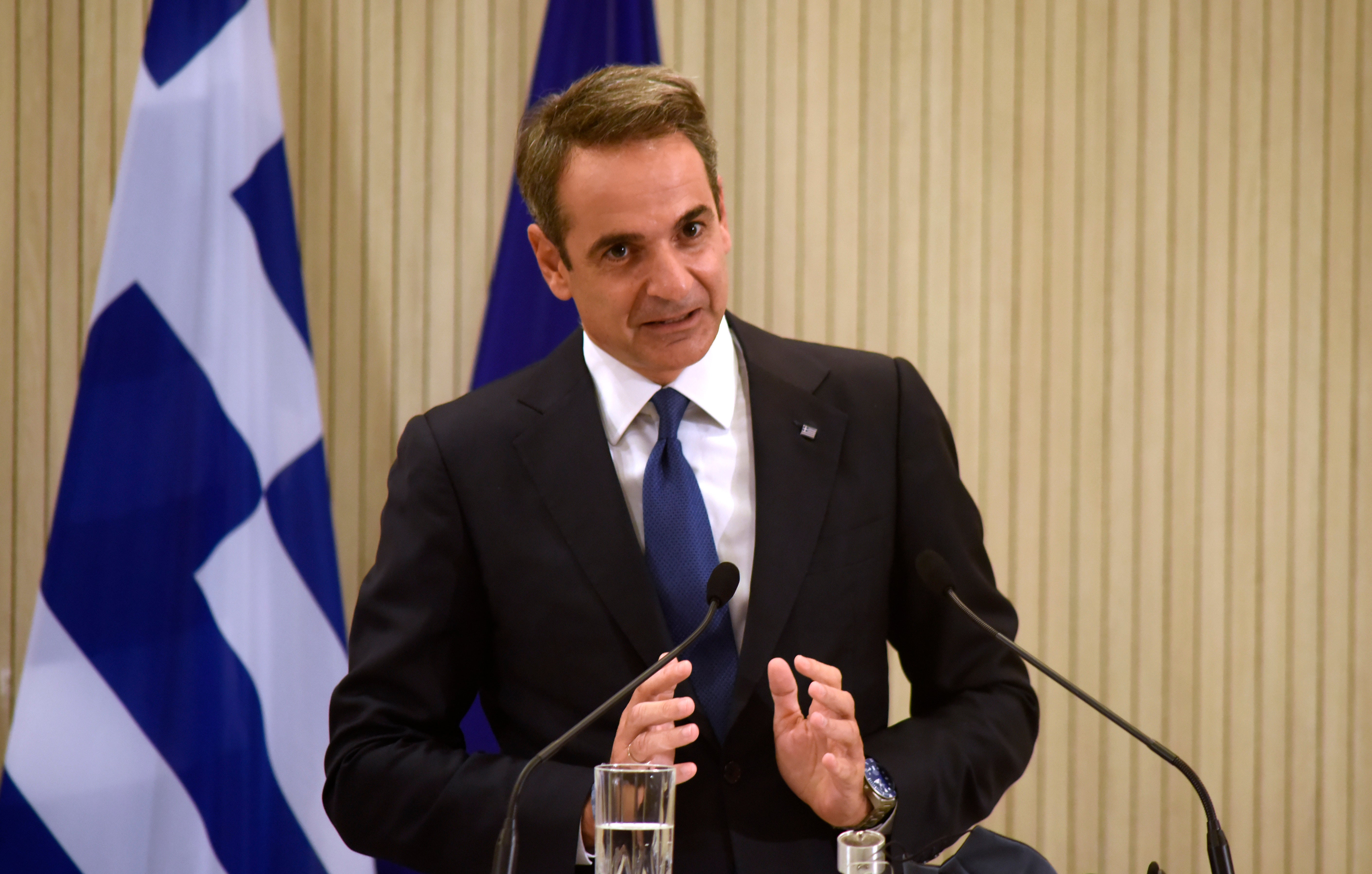Cyprus, Greece, Egypt to Turkey: drop the rancor, join us
The leaders of Cyprus, Egypt and Greece have renewed an invitation to Turkey to become a partner in reaping the potential benefits of offshore gas deposits, while urging Ankara to end its “aggressive” actions that undermine stability in the eastern Mediterranean

Your support helps us to tell the story
From reproductive rights to climate change to Big Tech, The Independent is on the ground when the story is developing. Whether it's investigating the financials of Elon Musk's pro-Trump PAC or producing our latest documentary, 'The A Word', which shines a light on the American women fighting for reproductive rights, we know how important it is to parse out the facts from the messaging.
At such a critical moment in US history, we need reporters on the ground. Your donation allows us to keep sending journalists to speak to both sides of the story.
The Independent is trusted by Americans across the entire political spectrum. And unlike many other quality news outlets, we choose not to lock Americans out of our reporting and analysis with paywalls. We believe quality journalism should be available to everyone, paid for by those who can afford it.
Your support makes all the difference.The leaders of Cyprus, Egypt and Greece on Wednesday renewed an invitation to Turkey to become a partner in reaping the potential benefits of offshore gas deposits, while urging Ankara to end its “aggressive” actions in the eastern Mediterranean.
Their one-day regional summit in Cyprus came amid high tension between neighbors and NATO allies Greece and Turkey over maritime borders, after Ankara sent a research vessel, escorted by warships, to disputed waters between the Greek islands, southern Turkey and Cyprus. Turkey has also sent drilling ships where Cyprus says it has exclusive economic rights.
Talks between Cypriot President Nicos Anastasiades, Egyptian President Abdel-Fattah el-Sissi and Greek Prime Minister Kyriakos Mitsotakis included cooperation in fields ranging from energy to combatting terrorism.
All three condemned Turkey's numerous “provocations” that they said have sharply escalated tensions and are threatening regional peace.
“The timing of this trilateral meeting coincides with additional dangers that are unfortunately created by Turkey’s leadership which dreams up imperial practices and aggressive acts from Syria, to Libya, from Somalia to Cyprus, from the Aegean to the Caucusus,” Mitsotakis said.
But both Mitsotakis and Anastasiades extended an olive branch to Turkey, offering a place within the three-way partnership if Ankara drops its belligerence.
“I’ll say it again that in our (partnership) Turkey could also take part, no one excluded it from the start,” Mitsotakis said. “But more often than not, what marginalizes it are its own actions unfortunately.”
Turkey claims huge swaths of the eastern Mediterranean as its own, and says it’s also defending the energy rights of breakaway Turkish Cypriots on war-divided Cyprus.
Greece and Cyprus have signed maritime border agreements with Egypt. They dismiss a similar deal that Ankara signed with Libya’s Tripoli-based government as “legally invalid.”
Mitsotakis said Turkey has transported “Syrian mercenaries” to Libya, proliferating “terror cells” in northern Africa that threaten Europe’s security.
The Greek leader repeated a call for his country’s European Union partners to stop arms sales to Turkey and to take note of Ankara’s “many violations” of its customs union with the 27-member bloc.
“A third country that’s a candidate for European Union membership cannot be exempted from customs duties, taste the benefits of the common market and at the same time threaten the European Union’s eastern borders and cause upheaval in all of the Mediterranean,” Mitsotakis said.
Anastasiades praised Egypt as an “important EU partner” and an “agent of regional stability” because of its efforts to fight terrorism and stem migrant flows.
El-Sissi said although his country hosts five million refugees, it has never leveraged that to secure political or economic gains from the EU. Turkey is receiving substantial financial aid from Brussels to care for its own large refugee population, which it has repeatedly threatened to allow to enter Europe through Greece.